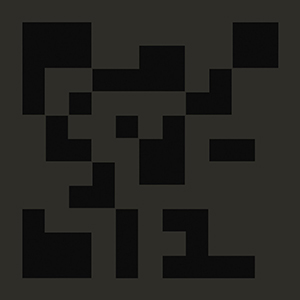Autechre Exai
Autechre‘s roots in b-boy culture are mentioned with some frequency, but the group’s latest transmission […]

Autechre‘s roots in b-boy culture are mentioned with some frequency, but the group’s latest transmission gives us reason to reflect on the fact. Seeing Autechre’s career through the lens of breaks—as an extension of the duo’s early pause tapes—is bound to be an oversimplification, especially when we’re dealing with a body of work that’s so complex on the surface. And yet, it’s a point of view that seems to explain the relative consistency inaugurated by 2008’s Quaristice; despite the disorienting effect of new technology on the pair’s sound, it’s not hard to believe that Autechre’s basic mission has remained the same at its core over the past 20 years. While breaks are often canned loop fodder for many strands of rave music, Autechre has always preferred to home in on breaks’ disjunctive aspect; rather than looping a break to 4/4 infinity, the duo dives into and multiplies those ruptures with a researcher’s deliberateness.
It goes without saying, then, that the usual critical evaluation, with its multi-album narrative arc, is irrelevant in the face of such determinedly polymorphous music. By design, Exai is neither better nor worse than its immediate predecessors. What’s interesting about Autechre’s release schedule is that the pair lays low long enough for critics and listeners to forget what to expect, and it takes a beat to readjust to the fact that for all of the group’s putative futurism, it is not quite as enigmatic as it seems. A subtle but distinct development from the now three-year-old Oversteps is a renewed emphasis on rhythm. Where the previous album unfurled creepy, beautifully shrill Nord keys at a ceremonial pace, Exai focuses on spitting MIDI fire into Machinedrums. Melody and harmony are dealt with more obliquely, often mangled by gurning beats. “Cloudline” is simultaneously one of the album’s more evocative cuts and one of its most abstract, as disembodied synths howl over a brittle, desertlike landscape, hi-hats interrupt like rogue bits in a streaming video, and a globular bassline is birthed painfully in the strangely familiar, elemental environment. The pressure-funk of early album highlight “jatevee C,” on the other hand, is sputtering electro transplanted to an Antarctic weather station.
For the most part, Exai more consistently evokes the club than anything Autechre has done in the last decade—and while it’s still a very hypothetical club, it’s enough just to hear Autechre apply this kind of pressure over the fractured, melancholic substrate that pervaded its last two albums. And, as always, it’s a lot to take in; even after a dozen listens, the album’s too oblique to really register in the memory. That slipperiness does nothing to diminish the moments when things really stick, though. For instance, “1 1 is” refashions the pistoning sound-world of Tri Repetae as switch-flipping lowrider music, over which a coked-out melody trips over its own phrases, all before a stately final section concludes on a suspended, almost baroque tone.

